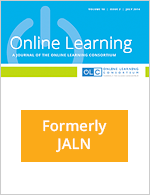Designing Corporate Training in Developing Economies Using Open Educational Resources
The Food Safety Knowledge Network (FSKN) is a collaboration between Michigan State University, the Global Food Safety Initiative of the Consumer Goods Forum, and other food industry and public sector partners. FSKN’s goal is to help strengthen the food industry’s response to the complex food safety knowledge and training challenges that affect emerging markets by providing free access to high-quality, standardized learning resources. The resources were designed to be available on demand and as a structured learning experience which can support face-to-face training and fully online training. The pilots thus far have shown that participants in FSKN training demonstrate a significant increase in knowledge. The paper will share the processes used to set up an efficient open educational resources initiative including understanding licensing, using open software, establishing competencies and working with corporate and other international partners.

